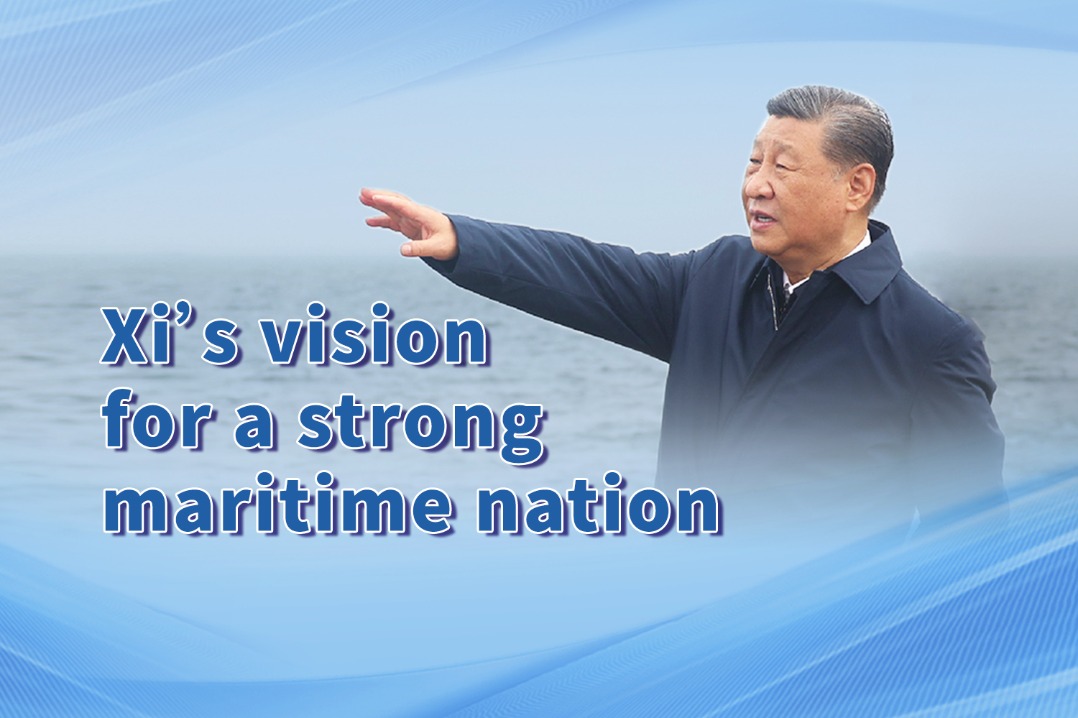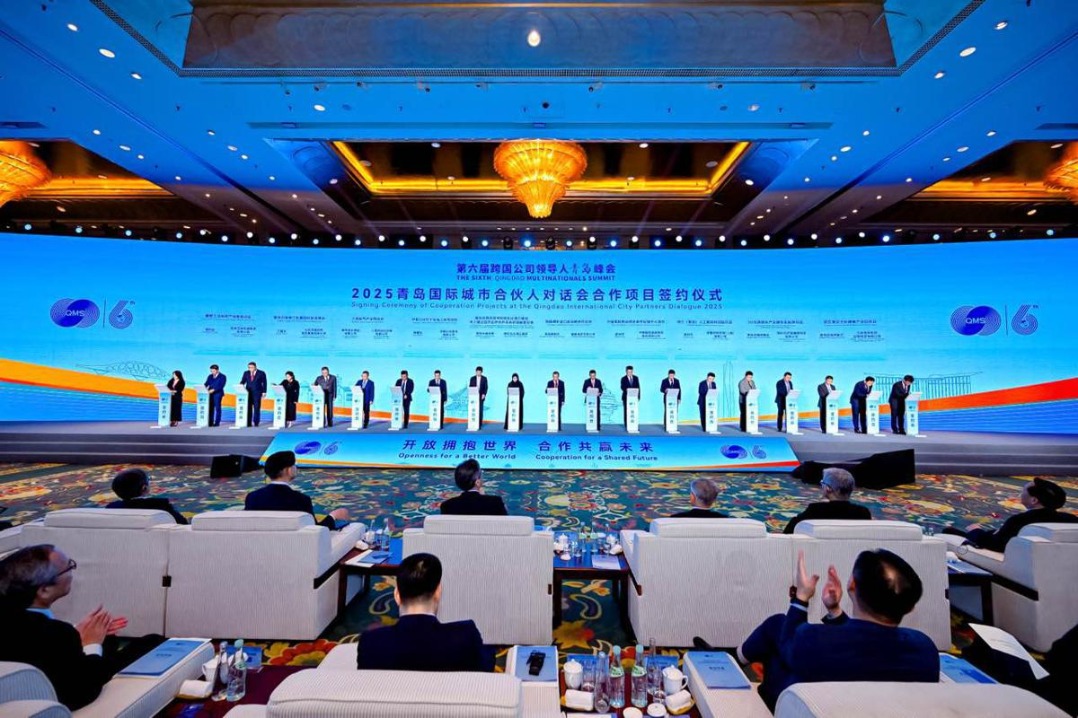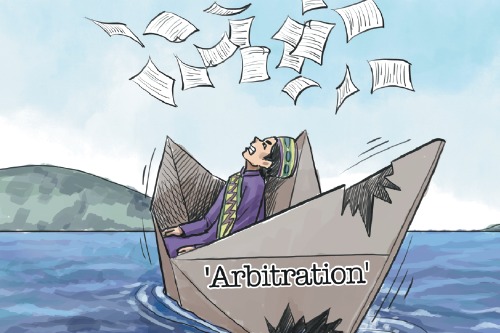Will crash trigger a crisis in Iran?


Editor's Note: Iranian President Ebrahim Raisi and Foreign Minister Hossein Amir-Abdollahian were declared deceased on Monday following a helicopter incident on Sunday. Below are excerpts of views shared by Chinese experts on this tragic incident.
Crash has profound impact on Iran
The world was shocked after getting confirmation on Monday that Iranian President Ebrahim Raisi and Foreign Minister Hossein Amir-Abdollahian have died in a helicopter crash.
The crash is not necessarily related to the Israel-Palestine conflict. So far, Iran is attributing it to adverse weather conditions and mechanical failure. The sudden deaths of the president and foreign minister are significant and unexpected events for Iran. In the short term, the country will likely enter a period of national mourning, halting all formal activities, including diplomatic engagements. Iran is expected to declare a state of emergency.
Thereafter, a new presidential candidate will have to be selected. Vice-president Mohammad Mokhbar can step into Raisi's shoes in the interim, but Raisi was seen as a successor to the Supreme Leader. Therefore, Iran must carefully consider who will take Raisi's place in the long run. The country will need to soon decide who will run for the next presidency or the Expediency Discernment Council will choose as a candidate.
In the immediate aftermath of the deaths of Raisi and Abdollahian, it is unlikely Iran can focus on regional diplomacy. Recent de-escalation talks with the United States might be put on hold. This development can lead to a reduction in Iran's involvement in Middle East affairs. Iran has been a key supporter of the Axis of Resistance, backing groups such as Hamas in Palestine, Hezbollah in Lebanon, the Popular Mobilization Forces in Iraq, and the Houthi movement in Yemen. Given the current situation, Iran may not be able to coordinate the collective actions of the resistance axis effectively. The military implications of this situation will require continued observation.
Ma Xiaolin, dean of and a professor at the Institute for Studies on the Mediterranean Rim at Zhejiang International Studies University.
Chance of 'assassination' slim
Iranian President Ebrahim Raisi and foreign minister Hossein Amir-Abdollahian were confirmed dead on Monday, a day after a helicopter carrying them went missing amid bad weather in the East Azerbaijan province on Sunday.
Although conspiracy theories are floating claiming he could be assassinated, available evidence suggests this was an accident; from a domestic and international perspective, there is not sufficient motive to assassinate Raisi.
Iranian media reports said the helicopter carrying Raisi, Abdollahian and other officials was a Bell 212 purchased from Canada during former president Mohammad Khatami's term (1997-2005). Even if the helicopter was newly manufactured at the time of purchase, it is no longer modern. And its maintenance is not easy for Iran, given the sanctions.
Even the Iranian government is not linking the crash to hostile forces at home or abroad.
Therefore, Raisi's unfortunate and untimely death will not have a major impact on the situation in the Middle East. This is just an internal political issue in Iran, because the supreme leader has a predominant role in policy formulation.
And given Iran's current domestic politics, the next president will also come from the conservative side. So Iran's government will maintain its national policy in the near future.
Fan Hongda is a professor at the Middle East Studies Institute, Shanghai International Studies University.
No reason for Israel to escalate confrontation
Given the ongoing turmoil in the Middle East and the enduring feud between Israel and Iran, it is natural for conspiracy theories to arise in the aftermath of the helicopter incident in which Iranian President Ebrahim Raisi and Foreign Minister Hossein Amir-Abdollahian were declared dead on Monday.
However, it is unlikely Israel would have escalated tensions to the point of targeting Iran's head of state. Nonetheless, the investigation's outcome will be critical in determining whether external forces played a role and how various actors might exploit the situation.
For Israel, anti-Iranian regional forces, and the United States, the death of Raisi and the weakening of the conservative faction led by Khamenei would be seen as advantageous. They would likely welcome the resulting power vacuum and potential destabilization within Iran.
In the short term, the impact on the Middle Eastern geopolitical landscape might be minimal, as Iran's foreign policy is primarily guided by its Supreme Leader. The key factors to watch will be the outcome of the investigation and the reactions of regional powers.
In the long term, Raisi's death is a significant blow to Iran. As one of the most promising successors to the Supreme Leader, his passing creates a notable void in Iran's future leadership. This will have substantial implications for Iran's domestic governance and international relations. The process of selecting a new successor will be closely scrutinized, influencing Iran's strategic direction for years to come. Internal political dynamics may shift as factions reposition themselves, potentially affecting Iran's ability to maintain its influence in the region. Iran's foreign policy, especially its support for proxy groups, could undergo significant changes depending on the priorities and strategies of the new leadership.
Tang Zhichao, a researcher on Middle East studies at the Chinese Academy of Social Sciences.
Security remains prime task for Iran
Ebrahim Raisi, who was sworn in Iranian President in 2021, was considered the most likely successor to Iran's Supreme Leader Ayatollah Ali Khamenei, who is 84 years old.
Iran initially identified the accident as a "hard landing incident". Yet the specific cause requires further investigation. Three theories cannot be ruled out though.
First, bad weather is one of the possible causes, as extreme weather increases the probability of accidents.
Second, mechanical failure cannot be ruled out. The Bell 212 helicopter carrying Raisi was not very new, having been purchased from Canada during former president Mohammad Khatami's term (1997-2005). Because of sanctions imposed by the United States, it was not easy for Iran to maintain the copter and replace old components.
Third, an assassination bid or sabotage is also a possibility considering internal security problems in Iran. However, Iran needs to conduct a thorough investigation to find out the exact cause of the crash.
The incident will have a significant impact on Iran's internal and foreign affairs as well as the regional security situation, especially in the current context of instability in the Middle East, the Palestine-Israel conflict, and Iran's confrontations with the United States and Israel.
The sudden death of Raisi, who was Iran's executive head and its number two leader after the supreme leader, is a serious issue for Iran's political stability. A new president needs to be elected as soon as possible.
Among several cabinet members who serve as vice presidents, Iranian First Vice President Mohammad Mokhber would step in as interim president.
Raisi's term was to end in 2025. New domestic political arrangements and a new balance of power between conservatives, moderates and hardliners may emerge in Iran. But Iran may not see an upheaval because Khamenei can still handle the country's political and religious affairs.
The world will see how the incident will affect Iran's regional security situation.
Iran's foreign policies have been pragmatic and prudent. Since coming to power, Raisi has adopted carrot-and-stick approaches. On the one hand, he tried to avoid direct conflicts with the US and Israel, which was evident in the Israel-Palestine conflict. On the other hand, Raisi actively improved Iran's relations with neighboring countries, including the Iran-Saudi Arabia talks in 2023 under China's mediation.
No matter who or which political faction comes to power, Iran is not likely to change the prior task of creating a secure and stable regional security environment conducive to its economic development by both mild and tough means.
Wang Lei, assistant research fellow at the Institute of World Economics and Politics, Chinese Academy of Social Sciences.



































